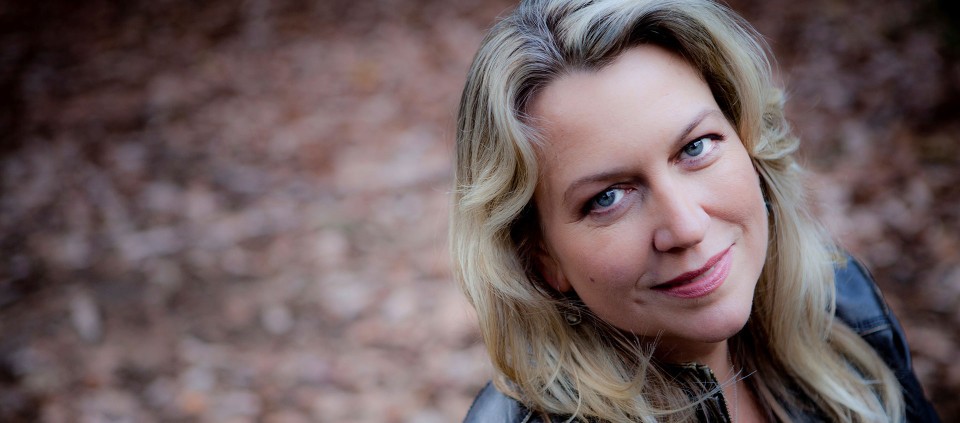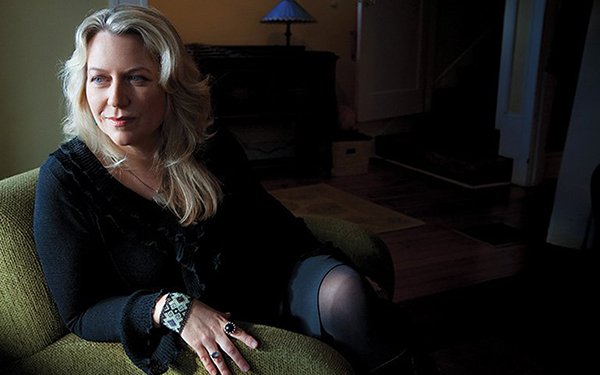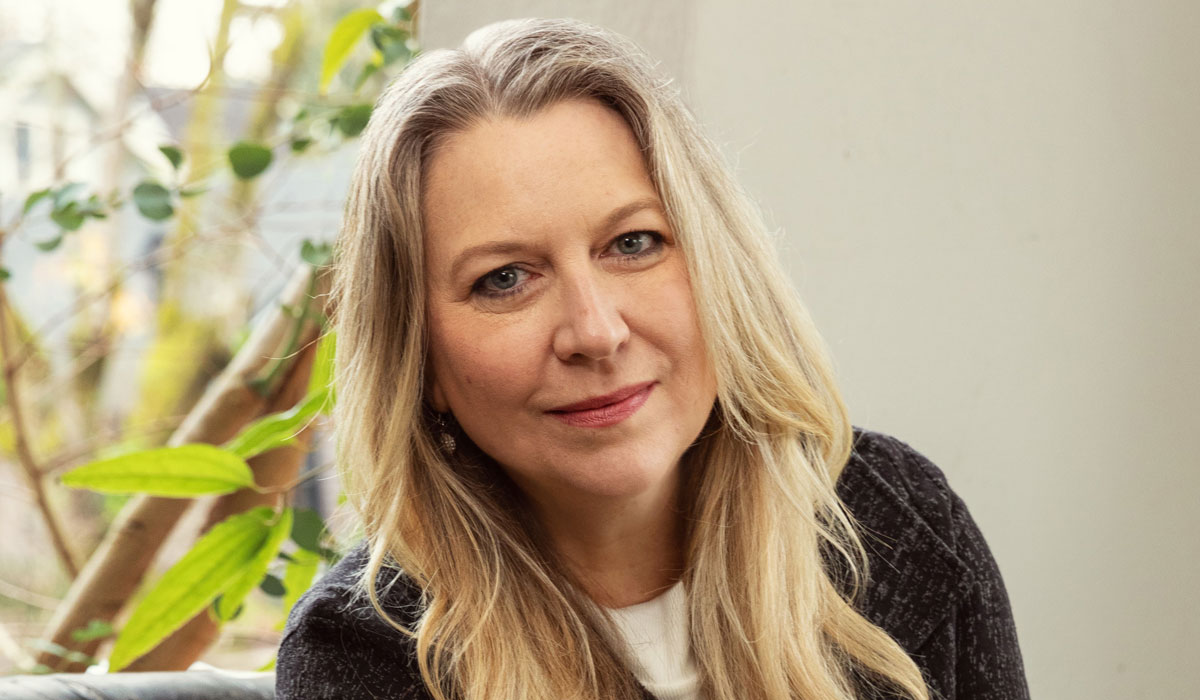Wisdom from Cheryl Strayed: Saying Goodbye to What Could Have Been

Several years ago, I lived alone in the drafty first floor of an old farmhouse. Cows grazed in the neighboring field. Broken gravestones lined the adjacent cemetery. It was the picture of New England charm and decay. Through one window, I saw sustenance and renewal, bovines intent on filling their stomachs. Though the other, I saw loss and disrepair.
I can now appreciate the symmetry of these views. But at the time, I felt sandwiched. I wanted to forge ahead but I spent a lot of time fretting about my losses: the city and job I’d left behind to start a new life in the Berkshires, the turbulent relationship I’d severed after a decade of false hopes, my friends, far away. My father, who’d passed away years ago.
At night, under comforters knitted by my mother and grandmothers, I kept the light on, reading late. I listened for the neighbor’s cat, the crank of the old boiler below. I held a book with a red cover, Tiny Beautiful Things by Cheryl Strayed, a collection of columns in response to questions about careers, parents, children, break-ups, grief, aging, depression, and writing.
I had to pause and shut the book from time to time to wipe my eyes and let the words seep in. They were tears of relief, in the calm quiet of the place I’d settled into. Here was a writer willing to be vulnerable and inviting me to be vulnerable too. As the advice columnist Dear Sugar, Cheryl revealed her own missteps but refused to wallow in them. She was exposed but tough. “We have to reach hard in the direction of the life we want,” she wrote, “even if it’s difficult to do so.”
I was 38, employed part-time. I had a roof over my head and food in the cupboards. But where was I going? Had I made the right decision in leaving my old life behind? Would I ever have children? Did I want to have children? Would I publish another book?
I opened Tiny Beautiful Things again and read,
“I’ll never know, and neither will you, of the life you don’t choose. We’ll only know that whatever that sister life was, it was important and beautiful and not ours. It was the ghost ship that didn’t carry us. There’s nothing to do but salute it from the shore.”
The ghost ship that didn’t carry us. I earmarked this page and kept the image close.
I had no way of knowing that eight years later, I’d be interviewing Cheryl.
Vivid, Lucid, Frank
At first, I gushed. I couldn’t help it. “Your writing is so artful,” I told her on the phone, not breathing. I touched the familiar red cover on my desk. “There’s so much care and attention and power in it and yet it’s accessible and doesn’t feel like it’s only for those interested in things literary.”
Did I sound like an idiot? Maybe that was an idiotic thing to say to a famous writer.
But she was genuinely grateful. “Thank you so much for seeing both of those things,” she said. “Sometimes people don’t. I’m a literary writer. I care deeply about language and metaphor and image and all the fancy-dancy, highfalutin things that literary people care about, but it’s always really mattered to me that my work is accessible to everyone and that the language not be a barrier. I think it’s due to growing up working class and poor as I did, not in a community or family of people who were very immersed in books, frankly. I’ve always loved a plain-spoken quality. I’ve tried to make my writing that way, poetic and sophisticated but plain. Vivid, lucid, and frank.”
“Yes!” I yelped back at her. “Vivid, lucid, and frank!”
“But the only way to really explain how I write the way I do is the years of apprenticing myself to the craft of writing,” Cheryl continued. “And, that’s my voice. That’s the other thing—getting to that point where I trusted I could say what I wanted to say in the way that I wanted to say it. To me, that’s the definition of voice. Voice is about being relaxed on the page and about being comfortable with the way you say things and the way you think about them.”
The Voice
Voice. I understood this. We’re all trying to find our true cadence, whether we’re writing or not.
When she returned to her novel Torch years after she published it to record the audiobook, Cheryl noticed the places where she was trying to be like Raymond Carver or Mary Gaitskill or Edna O’Brien or Alice Munro. “I wasn’t plagiarizing, but I loved their voices, and I wanted my voice to be like theirs,” she says. “I was emulating them. Nobody but a very close reader could see it. But I see it. I know they influenced me and I could see that I was doing that.”
With her later books, Wild and Tiny Beautiful Things, there was not one place where she did that, she says. “By the time I’d written those books, I wasn’t trying to emulate anyone. I was confident in who I was and what I had to say in the way that I had to say it.”
There are clearly passages in my own writing where I’m trying to sound like Cheryl Strayed. So I asked her: How do we overcome the blocks that keep us from writing, so we can discover what we truly have to say?
Her answer: We need to keep saying no to that inner voice that says, Be quiet.
Keep Speaking Truth
“The most powerful and important thing I have to offer the world is to speak from my deepest voice of truth,” she said. “And I think we all have that deep voice of truth. We know on a core level who we really are. So much of my teaching is about listening to and honoring that part of us who knows who we are and knows what we have to say. I just finished a short story and the whole time I’m thinking terrible thoughts to myself: You’re awful and you’re stupid and nobody wants to read this. I had to say, No, you can. I’m going to allow this story to be told, before I could pass through it and finish the thing.”
I thanked her for this, for sharing a moment of self-doubt. During my own moments of uncertainty, Cheryl’s books helped me continue.
Years ago, at the farmhouse apartment, I took a break from my laptop to walk to the cemetery. There, I thought about my ghost ship, the various choices I’d made, past and present, the sister life I didn’t have. I tried to acknowledge the ship from the shore, as Cheryl suggested. Not with a wave, which might imply regret or longing, but with a salute, just as Cheryl wrote.
Yes, I see you, ghost ship. I can’t come aboard.
And with that, I went back to my kitchen table, and back to writing.
Lara Tupper, MFA, is the author of two novels, Off Island and A Thousand and One Nights, and Amphibians, a linked short story collection forthcoming in 2021.
Full Bio and Programs
